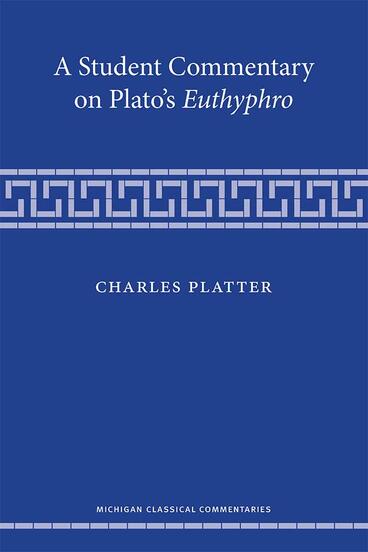A Student Commentary on Plato’s Euthyphro
One of Plato’s most famous works, now ready for the classroom
Description
The Euthyphro is crucially important for understanding Plato’s presentation of the last days of Socrates, dramatized in four brief dialogues: Euthyphro, Apology, Crito, and Phaedo. In addition to narrating this evocative series of events in the life of Plato’s philosophical hero, the texts also can be read as reflecting how a wise man faces death. This particular dialogue contains Socrates’ vivid examination of the intentions of Euthyphro to prosecute his own father for murder and culminates in an attempt to understand holiness—a topic central both to Euthyphro’s justification of his actions and to the charge of impiety that Socrates faces before the Athenian court.
This accessible student commentary by Charles Platter presents an introduction to the Euthyphro, the full Greek text, and a commentary designed for undergraduates and selected graduate students. As part of the series Michigan Classical Commentaries, now edited by Josiah Osgood and Alexander Sens at Georgetown University, and K. Sara Myers at the University of Virginia, the volume is sized and priced for student use.
Charles Platter is Professor of Classics at the University of Georgia.
Reviews
“A Student Commentary on Plato’s Euthyphro is an excellent introduction to Plato’s rich dialogue. The commentary is smart, well-organized, and pitched at the right level for an undergraduate audience. With clear and effective writing, it nicely situates the dialogue in the social and political context of fifth century Athens.”
—Mark McPherran, Simon Fraser University

